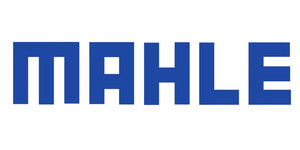
FARMINGTON HILLS, Mich., Sept. 15, 2015 /PRNewswire/ -- MAHLE delivers improved top piston rings using a new thermal spray coating for modern high-output direct-injection turbocharged gasoline engines (GTDI).
Under development since 2011 at MAHLE's thermal spray development labs in Muskegon and St. Johns, Michigan, the new process initially was designed for high-output GTDI engines currently in production by two U.S. domestic automakers.
The market for high-output turbocharged engines is expected to achieve a market share of 30 percent or more by 2020.
The new coating also was developed to help meet requirements for new production engines planned for 2018-2020, which call for less cylinder-bore friction and the use of lower-viscosity oils and alternative fuels. It provides the superior performance of a more costly premium inlaid top ring.
The new coating, also referred to as MSC312, improves upon the scuff-and-wear capabilities of MAHLE'S well-known MSC385 coating because of its chromium nitride composition. MSC312 uses chromium nitride in top ring coatings applied through a high-velocity oxygen fuel (HVOF) method.
Typically high-output engines under 3.5 liters are susceptible to low-speed pre-ignition or "mega-knock."
HVOF coatings are the only family of coatings that currently can survive high levels of low-speed pre-ignition in GTDI engines without damaging the top piston ring.
Tested against the MSC385 (chrome carbide HVOF) currently used in several North American production engines, MSC312 improves wear by up to 25 percent as well as providing improved scuff resistance. The thickness of the new coating also can be adjusted to meet engine durability requirements.
Chromium nitride (CrN) coatings are common in the piston-ring industry when applied by physical vapor deposition. CrN generically provides excellent wear resistance and low friction between piston ring and cylinder wall. It also resists scuffing at the ring-to-wall interface. MAHLE's new coating is the first thermally applied piston ring coating to use chromium nitride in its formulation. The addition of molybdenum-chrome provides enhancements to pure CrN.
In the past, top-ring coatings were applied using conventional plasma methods. In downsized GTDI engines conventional top-ring plasma rings are not sufficiently robust to survive high levels of low speed pre-ignition activity associated with low-speed, high-boost conditions found with GTDI engines.
Conventional plasma methods are used for ring production at MAHLE's St. Johns plant and at MAHLE's facilities in Europe, South America and Aguascalientes, Mexico.
About MAHLE:
MAHLE is a leading international supplier to the automotive industry. With its products for combustion engines and their peripherals as well as solutions for electric vehicles, the group addresses all the crucial issues related to the powertrain and air conditioning technology—from engine systems and components to filtration to thermal management. MAHLE products are fitted in every second vehicle worldwide. MAHLE components and systems are also used off the road—in stationary applications, for mobile machinery, as well in railroad, marine, and aerospace applications.
In 2014, the group generated sales of EUR 9.94 billion with around 66,000 employees. Today, MAHLE is represented in over 30 countries with 170 production locations. At 16 major development locations in Germany, Great Britain, Luxembourg, Slovenia, the USA, Brazil, Japan, China, and India, more than 5,000 development engineers and technicians are working on innovative solutions.
More information is available at www.mahle.com, www.mahle.com/mahle/en/news-and-press/
Logo - http://photos.prnewswire.com/prnh/20140625/121511
SOURCE MAHLE






Share this article